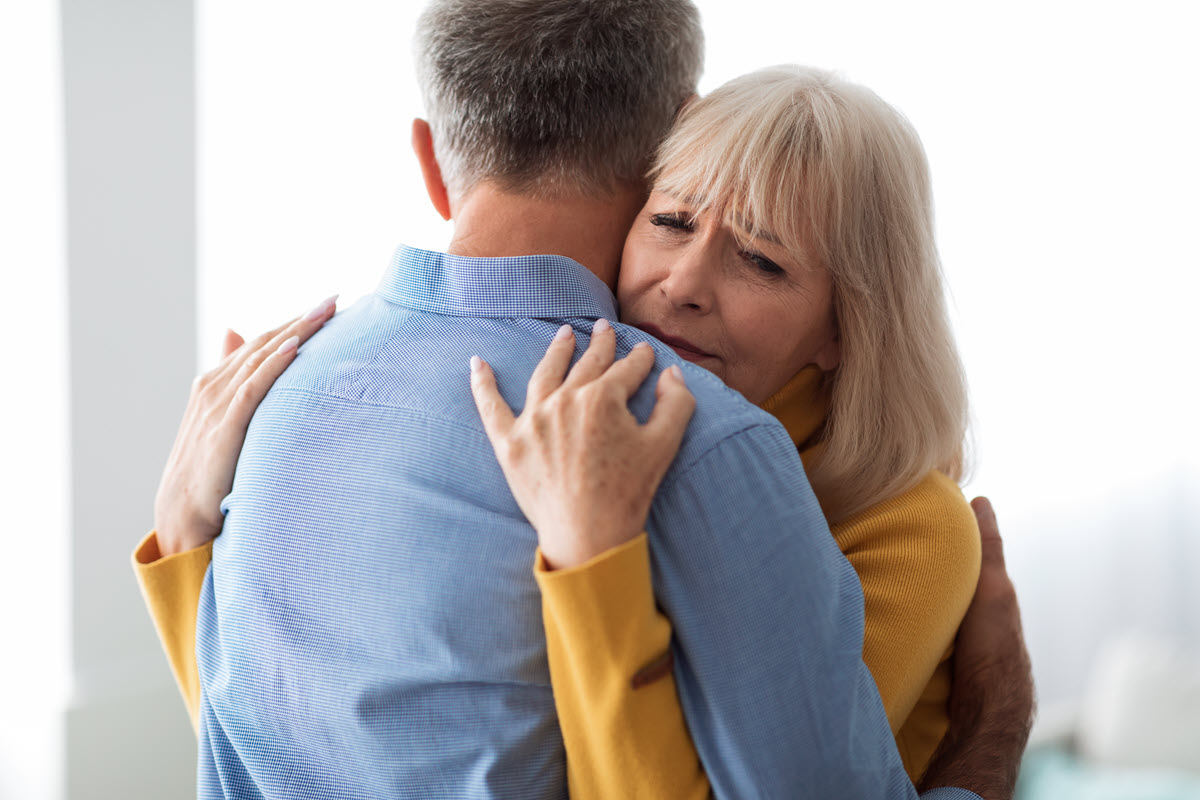
The Chaotic Stages of Grief
“Only people who are capable of loving strongly can also suffer great sorrow, but this same necessity of loving serves to counteract their grief and heals them.”― Leo Tolstoy

Everyone experiences loss at some point in their lifetime. Dealing with losing a loved one, a relationship, a job, and/or your health can cause an emotional upheaval and physical exhaustion at times.
In recent decades, many people have focused on the grief stages. When you are grieving, you might think you know which “stage” you’re in and what’s to expect next. You think that you have a handle on this whole “grief” thing, and that you will be fine once you get through this part of it.
Then a memory or intense feeling comes at you out of the blue and you are blindsided by emotions while in a meeting at work or cooking dinner.
Everyone grieves differently and has a unique way of working through the process.

The photo above is one of the truest ideas on grief that I know of. The grief stages are not in a certain order and when you think you are done with one stage, you’re basically not.
Emotions such as anxiety, fear, guilt, abandonment, sadness, are all part of grief. And the common thread that runs through these feelings is the void that is left when your loved one is gone. It’s as though they filled a part of you and now there is a huge hole there that you don’t know how to fill.
And it seems that most people know someone who has died in the last year.
There are so many kinds of losses now in this pandemic. A whole way of life is gone, and we are grappling to get through the current times, recover, and design our “new normal”. People don’t talk much about the “new normal” anymore. Perhaps we are in the new normal now.
There’s confusion, isolation, and exhaustion. The emotions of grief last a long time, longer than we want them to, and it helps when you know what is normal in the grief process, and how to handle the emotions of it all.
Grief work is called work for a reason. It is possibly the hardest work you will do in this lifetime. Loss of a loved one changes everything, everything. Families shift, some friendships do not continue, new friendships are made, the physical health can diminish.
And there are different types of grief:
- Grief after the death of a loved one
- Anticipatory grief begins before the death occurs, usually during the time of medical interventions and hospice. It is experienced by loved ones and also by the person dying. Yes, the one who is dying is also grieving the loss of their loved ones.
- Disenfranchised grief. Examples of this type of grief are grieving about an ex-spouse or ex-lover, a pet, same-sex partner, suicide, non-blood relationship, or a non-death loss. Because of society’s stigma, what is accepted grief and what is not, others do not understand why you would be sad, and your grief is not validated. It is difficult to find someone to talk with about your grief because the relationship with the deceased beloved is not acknowledged by society.
But you know that your pain is real, and, if you are like most of us, you want it to go away immediately. Grief takes time, sometimes a long time. The void caused by the loss is healed by acknowledging your pain, talking about it, and giving yourself the time to experience the roller coaster of emotions that can come up at any given time.
Just like you do not go to the gym one time and have a perfect body, it takes time to recover from the intense feelings of grief and learn how to move forward.
Tips for Dealing with the Loss of a Loved One (including furry ones, pets)
- Whenever it is possible, take your time doing the task at hand. Nothing you can do will bring them back or put a rush on the grieving process. You need to take this time to remember and cherish the times you had together. A lot of people describe the grieving times as “fuzzy”, that they cannot think straight. So, it’s good for folks to take time for some of the fog to lift.
- Rest, just rest. Even if you are lying in bed, awake at 4:00 am, you can still be resting.
- Keep pen and paper by your bed to write down lists of the things you need or want to do and things that are bothering you. That way it will be out of your head and on paper and you will be able to sleep better.
- Take extra good care of your physical self. Whether you know it or not, you are going through an extremely difficult time, and your physical body is stressed too. If you are not well, check with your medical doctor to make sure that you are doing what you need to do to for your own self-care.
Healing from grief is a process. Everyone needs help at some point. You have experienced a major life event and you just didn’t expect this to be as intense as it is right now.
Clients report that grief counseling helped them get back to living and learn how to take care of themselves while going through the grieving time. Reaching out and getting the help you need, letting others take care of you and your needs, and getting to a grief counselor who is experienced in the grief process is a great way of taking care of and investing in yourself. You owe it to yourself and to you loved ones.
People say that, looking back on the bereavement time, grief can be a very rich experience with a lot of personal growth. The bereavement process can be a time of exploration, of self-definition, and of re-evaluation. The potential for personal growth in the grief process is available, plausible, and can be realized when the bereaved is motivated to look at the process as a learning experience. When appreciated for what it is, the intense grief experience too becomes a teacher and a catalyst for transformation.
The journey of personal healing and growth is unique for each individual, and psychotherapy can provide invaluable support along the way. By fostering self-awareness, encouraging healthy coping strategies, and promoting goal attainment, therapy equips individuals with the tools necessary to navigate life’s challenges and embrace change. Remember, seeking help is a sign of strength, and through this process, you can unlock your full potential and lead a more fulfilling life.
If you’re looking for guidance on your personal growth journey, consider reaching out to Dr. Melissa Valentina: 954-737-2364. Together, we can explore the depths of your thoughts and emotions, paving the way for a brighter, more empowered future.
The 15-minute consult is my gift to you.







